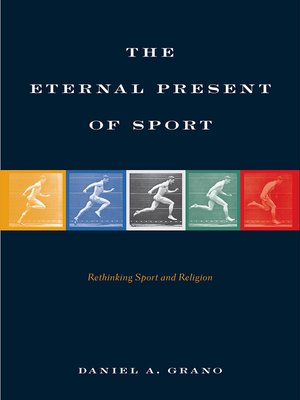
Sign up to save your library
With an OverDrive account, you can save your favorite libraries for at-a-glance information about availability. Find out more about OverDrive accounts.
Find this title in Libby, the library reading app by OverDrive.



Search for a digital library with this title
Title found at these libraries:
| Library Name | Distance |
|---|---|
| Loading... |
In his persuasive study The Eternal Present of Sport, Daniel Grano rethinks the sport-religion relationship by positioning sport as a source of theological trouble. Focusing on bodies, time, movement, and memory, he demonstrates how negative theology can be practically and theoretically useful as a critique of elite televised sport.
Grano asserts that it is precisely through sport's highest religious ideals that controversies are taking shape and constituting points of political and social rupture. He examines issues of transcendence, "legacy"—e.g., "greatest ever," or "all-time"—and "witnessing" through instant replay, which undermine institutional authority. Grano also reflects on elite athletes representing especially powerful embodiments of religious and social conflict, including around issues related to gender, sexuality, ability doping, traumatic brain injury, and institutional greed.
Elite sport is in a period of profound crisis. It is through the ideals Grano analyzes that we can imagine a radically alternative future for elite sport.
Grano asserts that it is precisely through sport's highest religious ideals that controversies are taking shape and constituting points of political and social rupture. He examines issues of transcendence, "legacy"—e.g., "greatest ever," or "all-time"—and "witnessing" through instant replay, which undermine institutional authority. Grano also reflects on elite athletes representing especially powerful embodiments of religious and social conflict, including around issues related to gender, sexuality, ability doping, traumatic brain injury, and institutional greed.
Elite sport is in a period of profound crisis. It is through the ideals Grano analyzes that we can imagine a radically alternative future for elite sport.







